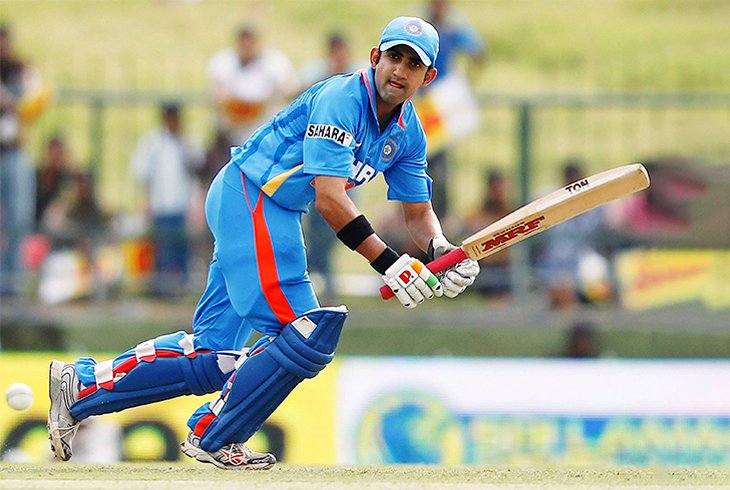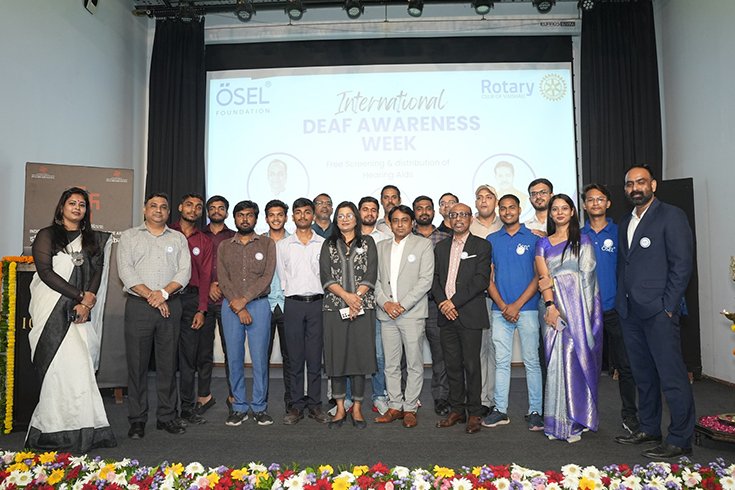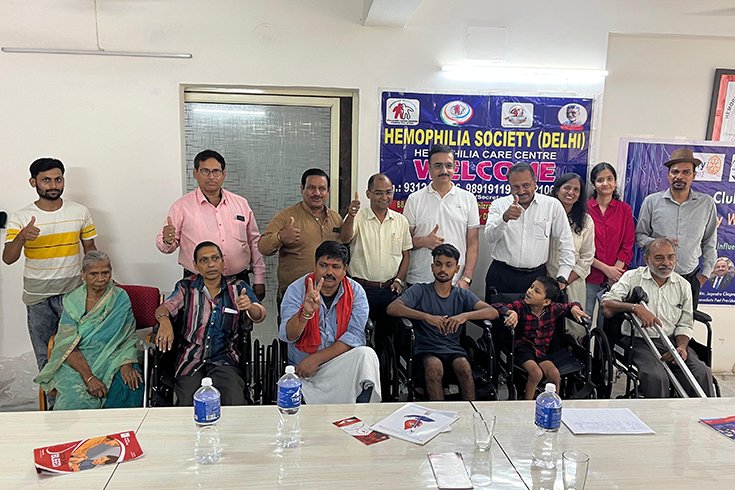Kapil Dev
Ramlal Nikhanj, widely known as Kapil Dev, is one of the greatest cricketers
India has ever produced. Born on January 6, 1959, in Chandigarh, India, Kapil
Dev's name is synonymous with revolutionizing Indian cricket. His dynamic
leadership, exceptional all-round abilities, and inspirational achievements on
the field have cemented his place in cricket history. Kapil Dev was not only a
superb fast bowler and an explosive batsman, but also one of the most
successful Indian captains. His most iconic achievement was leading India to
its first-ever Cricket World Cup triumph in 1983, a victory that transformed
Indian cricket forever.
Early
Life and Cricketing Journey
Kapil Dev
was born into a Punjabi family in Chandigarh. From a young age, he displayed a
passion for sports, particularly cricket. As a young boy, he was naturally
athletic and soon became known for his stamina and strength. In the early
stages of his career, he trained under Desh Prem Azad, his coach, who helped
hone his fast bowling skills, which were relatively uncommon among Indian
cricketers at the time.
Kapil Dev
made his debut in first-class cricket for Haryana in 1975, and from his initial
matches, he showed great potential as both a bowler and a batsman. His
performances earned him a spot in the Indian national team, and he made his
Test debut against Pakistan on October 16, 1978, in Faisalabad. While his first
match wasn’t particularly remarkable, Kapil Dev's skill and tenacity soon shone
through.
Rise to
Prominence
By the late
1970s and early 1980s, Kapil had emerged as a key figure in Indian cricket. His
fearless approach as a fast bowler was instrumental in breaking the dominance
of spin bowling that had traditionally been the backbone of India’s attack. He
quickly became one of the best all-rounders in the game, displaying a unique
combination of aggressive batting, sharp pace bowling, and athletic fielding.
Kapil's
versatility was showcased when he scored his maiden Test century against the
West Indies in 1979. His aggressive style of play, which emphasized
hard-hitting and attacking batting, helped him gain recognition not only in
India but across the cricketing world. In 1980, he took 10 wickets in a match
against Pakistan in Chennai, solidifying his position as India’s leading fast
bowler.
Captaincy
and the 1983 World Cup
Kapil Dev
was appointed captain of the Indian cricket team in 1982. While his early
captaincy tenure faced challenges, particularly in Test cricket, it was his
leadership during the 1983 Cricket World Cup that turned him into a legend.
India, at
that time, was not considered a top contender in world cricket. In the previous
editions of the World Cup, India had never advanced past the group stages.
However, under Kapil Dev’s leadership, the team’s underdog status was
transformed into one of resilience and belief.
One of the
most remarkable moments in cricket history came during the 1983 World Cup, when
India was playing against Zimbabwe in a must-win group stage match. India was
struggling at 17/5 when Kapil Dev walked to the crease. In one of the greatest
innings in World Cup history, he scored an unbeaten 175, rescuing India from
the brink of elimination and leading the team to victory. Unfortunately, this
innings was never televised due to a broadcasting strike, but it remains a
legendary tale in Indian cricket folklore.
Under
Kapil’s captaincy, India went on to defeat the mighty West Indies in the final
at Lord’s on June 25, 1983. India’s win by 43 runs in the final was a
monumental achievement and marked the emergence of India as a major cricketing
force. Kapil Dev's leadership, inspiring performances, and belief in his team's
abilities were key factors in India's World Cup victory.
Post-1983
Career
After the
1983 World Cup, Kapil Dev continued to play a vital role in Indian cricket. He
captained India in multiple series and was part of key victories, such as
India’s triumph in the 1985 Benson & Hedges World Championship of Cricket
in Australia.
As a player,
Kapil Dev continued to excel with both bat and ball. His all-round abilities
made him an asset in both Test and ODI cricket. In 1994, he became the highest
wicket-taker in Test cricket, surpassing Sir Richard Hadlee's record of 431
wickets. Kapil Dev ended his Test career with 434 wickets, a record that stood
for several years until it was broken by Courtney Walsh.
He retired
from international cricket in 1994, leaving behind a legacy that shaped the
future of Indian cricket. Kapil Dev’s career stats speak volumes about his
contribution to the sport. In 131 Test matches, he scored 5,248 runs at an
average of 31.05, including 8 centuries and 27 fifties. In the bowling
department, he took 434 wickets at an average of 29.64. In One Day
Internationals (ODIs), he played 225 matches, scored 3,783 runs, and took 253
wickets.
Kapil
Dev’s Major Awards and Honors
Kapil Dev’s
illustrious career and contributions to cricket have earned him numerous awards
and accolades. Below is a comprehensive list of some of his major awards:
- Arjuna Award (1979):
- Kapil Dev received the Arjuna
Award in 1979, which is one of India’s highest honors for outstanding
achievement in national sports.
- Padma Shri (1982):
- In 1982, Kapil Dev was awarded
the Padma Shri, the fourth-highest civilian award in India, in
recognition of his distinguished service to cricket.
- Wisden Cricketer of the Year
(1983):
- Kapil Dev was named one of the
Wisden Cricketers of the Year in 1983, one of the most prestigious honors
in cricket. This came after his remarkable performances, particularly
during the 1983 World Cup.
- Padma Bhushan (1991):
- In 1991, Kapil Dev was awarded
the Padma Bhushan, the third-highest civilian award in India, for his
exceptional contribution to Indian cricket.
- Wisden Indian Cricketer of the
Century (2002):
- In 2002, Kapil Dev was honored
as the Wisden Indian Cricketer of the Century. This prestigious award
recognized him as the greatest Indian cricketer of the 20th century,
ahead of legends such as Sunil Gavaskar and Sachin Tendulkar.
- ICC Cricket Hall of Fame (2010):
- In 2010, Kapil Dev was inducted
into the International Cricket Council (ICC) Hall of Fame. This
recognition placed him among the legends of the game who have made an
indelible impact on international cricket.
- C. K. Nayudu Lifetime
Achievement Award (2013):
- Kapil Dev received the
prestigious C. K. Nayudu Lifetime Achievement Award from the Board of
Control for Cricket in India (BCCI) in 2013, recognizing his outstanding
contributions to Indian cricket both as a player and a mentor.
- NDTV Indian of the Year -
Lifetime Achievement Award (2008):
- Kapil Dev was awarded the NDTV
Indian of the Year – Lifetime Achievement Award in 2008 for his
unparalleled achievements in Indian cricket and his role in transforming
the sport in the country.
- ICICI Lifetime Achievement Award
(2006):
- Kapil Dev was also honored with
the ICICI Lifetime Achievement Award in 2006 for his contribution to
cricket and for inspiring generations of cricketers in India.
Post-Retirement
Life and Contributions
After
retiring from international cricket, Kapil Dev transitioned into various roles,
continuing to contribute to the game and society at large. He served as the
coach of the Indian national cricket team between 1999 and 2000, though his
tenure was brief and controversial. Despite the challenges, his impact on
Indian cricket remained significant.
Kapil Dev
has also been involved in various charitable activities, and his philanthropic
efforts have extended beyond cricket. His love for golf post-retirement has
been well-documented, and he has become an avid golfer, even participating in
senior-level tournaments.
Apart from
sports, Kapil has been a popular figure in the media and entertainment
industry. He has appeared in commercials, served as a cricket commentator, and
written books about his life and career. His autobiography, "Straight
from the Heart", offers insight into his journey and experiences as a
cricketer.
In 2019,
Kapil Dev's life and legacy were immortalized in the Bollywood film "83",
directed by Kabir Khan, which chronicled India's 1983 World Cup win. Actor
Ranveer Singh portrayed Kapil Dev in the film, which brought to life the
historic victory that changed the landscape of Indian cricket.
Impact on
Indian Cricket
Kapil Dev’s
contributions to Indian cricket go far beyond his statistics and individual
accolades. He is widely regarded as the player who transformed Indian cricket,
helping the team transition from an underdog in world cricket to a formidable
force.
Kapil’s
belief in fast bowling and his own performances inspired generations of Indian
fast bowlers, such as Javagal Srinath, Zaheer Khan, and later, Jasprit Bumrah.
His role as an all-rounder paved the way for other Indian cricketers like
Ravindra Jadeja and Hardik Pandya, who have followed in his footsteps.
Moreover,
the 1983 World Cup win under Kapil's leadership instilled a sense of confidence
and pride in Indian cricket fans and players alike. The victory is often
considered the turning point in the popularity of cricket in India, which soon
became the nation’s most beloved sport.
Conclusion
Kapil Dev is
more than just a cricketer; he is an icon whose influence on Indian cricket is
immeasurable. His leadership, skill, and passion for the game not only brought
glory to India but also inspired future generations of cricketers. His journey
from a young boy in Chandigarh to becoming one of the greatest all-rounders in
the history of cricket is a testament to his determination, talent, and hard
work.
Kapil Dev's
name will forever be etched in cricketing history, both in India and worldwide,
as the man who led a team of underdogs to World Cup glory and transformed
Indian cricket into a global powerhouse. His legacy continues to inspire
millions of cricketers and fans around the world, and his impact on the sport
will be felt for generations to come.












